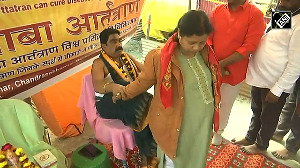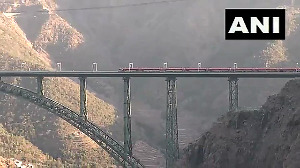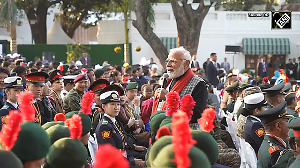Ahead of the ministerial meeting, starting Monday, several developing countries including India, South Africa, China, Brazil and Argentina said on Tuesday that the latest revised draft text on Doha non-agricultural market access lacked balance and equity.
Besides, it violated the cardinal principle of a less-than-full reciprocity in Nama that requires developing countries to undertake bigger commitments than the developed countries.
In the first informal meeting held four days before the ministerial being convened by World Trade Organization chief Pascal Lamy, many developing countries have further hardened their stand on several aspects of the latest Nama text issued last week.
The chair, in the latest draft text, proposed that industrialised countries must accept a coefficient between 7 and 9, while developing countries must agree to a coefficient in three ranges -- 19 to 21, 21 to 23, and 23 to 26 -- with respective sets of flexibilities which would enable certain number of sensitive tariff lines to be exempted from the formula reduction commitments.
If these coefficients are translated into percentage increases, the industrialised nations will cut industrial tariffs between 43 and 48 per cent, while developing countries will reduce between 53 and 58 per cent, a senior Argentine trade negotiator told Business Standard.
"The principle of less than full reciprocity is undermined, and this is unacceptable," he maintained.
India said while the underlying architecture in the draft text is acceptable, it cannot agree to the figures in the coefficients as it violates the LTFR principle, suggesting that 'the Doha mandate is transgressed'.







 © 2025
© 2025